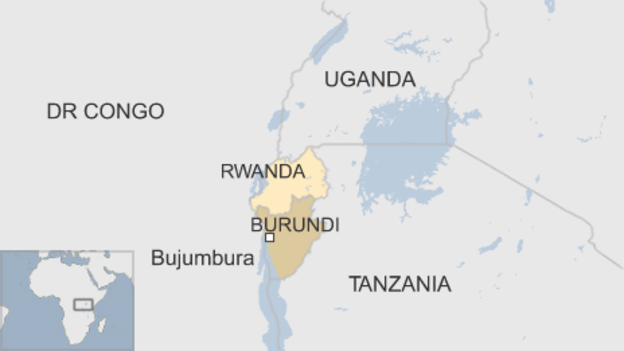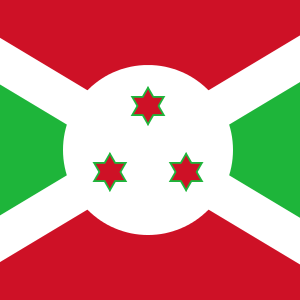Uganda recently had national elections, but there are other countries in East Africa dealing with issues relating to government imposed standards on its people. While there are many who would question the validity of the democratic process in Uganda, in comparison to its neighbors it is considered a country with relative stability and general prosperity.

Eastern Africa has seen its share of conflict through the years. Rwanda serves as a grim reminder of what can happen when hate causes ethnic cleansing and triggers genocide. Just South of Rwanda and considered a part of Central Africa lies Burundi, another nation that possibly faces imminent ethnic conflict once again.
Burundi, or the Republic of Burundi is one of the poorest nations of the world and has a history of a twelve year ethnic-based civil war that killed nearly 300,000 people. Since this country declared independence in 1962, there has been tension between two people groups. The Tutsi are the tribe in the minority and continue to clash with the Hutu.
Pierre Nkurunziza is the current president and a former Hutu rebel leader. He is in his third term in office, although his latest re-election has been questioned by opposing parties. In the past calendar year, tensions have continued to rise and violence is becoming a normal occurrence on the streets of the capital, Bujumbura.
Here is a brief timeline of events for those who may not be familiar with the current situation:
• April 2015 – protests after President Nkurunziza declares he will seek another term in office
• May 2015 – Constitutional court rules in favor of Mr. Nkurunziza amid reports of judges being intimidated by his supporters. Tens of thousands of people flee the country as a result.
• May 2015 – Army officers stage a coup to get rid of Mr. Nkurunziza, but it fails.
• July 2015 – Mr. Nkurunziza re-elected, though polls are widely disputed.
• November 2015 – Government gives warning for opposition to surrender weapons five days prior to promised crackdown
• November 2015 – UN warning: less equipped to deal with Burundi violence than genocide in Rwanda.
• December 2015 – 87 people killed in one day as soldiers respond to attack on military sites in Bujumbura.
• January 2016 – President Nkurunziza threatens to counter the deployment of external peacekeepers after the African Union announces plans to send in 5,000 troops to protect civilians from escalating violence between government and rebel forces.
In December of 2015 the African Union is quoted as saying they “will not allow another genocide to take place on its soil.” But the situation remains tense. UN High Commissioner for Human Rights Zeid Ra’ad al-Hussein said that “Burundi is at bursting point, on the very cusp of a civil war” which could have “ethnic overtones” similar to past conflicts in Burundi. At least 400 people have been killed, nearly 3,500 arrested and at least 220,000 people have fled the country since April, Mr al-Hussein said.
(http://www.bbc.com/news/world-africa-35120221)
Activists have gone into hiding, fearing attack. One opposition member who had been shot in the legs told me he could not escape north on the road to Rwanda.
“The police have my picture and they know my identity. If I try to flee, I will get caught, so I chose to stay. Even now, they can kill my family.”
(http://www.bbc.com/news/world-africa-34987198)
Amnesty says that since the beginning of the protests in April, residents of Bujumbura have become accustomed to near-daily reports of corpses being found in the streets.”Frequent arbitrary arrests and enforced disappearances, as well as what appears to be a systematic practice of extortion by the security forces… have also contributed to the rapid deterioration of the human rights situation in the country,” Amnesty says.
While the government faces “an extremely challenging security situation”, including armed attacks on the security forces, “it must confront these challenges in a manner consistent with human rights and the rule of law”.
(http://www.bbc.com/news/world-africa-35157517)
Sources:
http://www.bbc.com/news/world-africa-13085064
http://www.bbc.com/news/world-africa-13087604
https://www.amnesty.org/en/countries/africa/burundi/report-burundi/
https://www.hrw.org/world-report/2015/country-chapters/burundi






